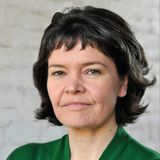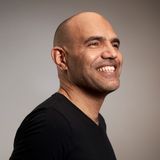To keep the earth a liveable planet and to stop climate change, system changes are needed . Getting people moving and empowering them to act sustainably is therefore crucial. Also ensuring an inclusive approach so that sustainable behavior change is possible for everyone! Important models addressing this urgent matter are Kate Raworth’s Doughnut Economics and Marleen Stikker’s Public Stack.
But how do we make ideas like the Doughnut model and Stacktivism possible in Amsterdam, the Netherlands and beyond? Regenerative, Circular and sustainable cities require that we understand “Ownership” differently. This requires for new ways of imagining, questioning, and connecting. Which methods do we need to redesign our current processes and economic models?
In this program Marleen Stikker and Kate Raworth will give you insights to their models, and will reflect on some great innovative initiatives/ projects/ ideas that we discuss with other speakers. We invite you to join this session and see if we all can come-up with ideas to redesign ownership!








Kate Raworth is a renegade economist focused on making economics fit for 21st century realities. She is the creator of the Doughnut of social and planetary boundaries, and co-founder of Doughnut Economics Action Lab. Her internationally best-selling book Doughnut Economics: seven ways to think like a 21st century economist has been translated into over 20 languages and has been widely influential with diverse audiences, from the UN General Assembly to Pope Francis to Extinction Rebellion.
Marleen Stikker is founder and executive director of Waag Futurelab in Amsterdam. Waag Futurelab reinforces critical reflection on technology, develops technological and social design skills, and encourages social innovation. Marleen leads the trans-disciplinary team of designers, artists and scientists, utilising Public Research and Key Enabling Methodologies to empower people to participate in the collective design of open, fair and inclusive futures. Marleen also created the Public Stack model. This stack puts public values at the centre of the design process, and asks all the difficult questions, leading to safer technology that doesn’t spy on us or sell our data.
Lyongo Juliana fell in love with Architecture when he was a student in Architectural Engineering at TU/Eindhoven. During his Architect in Residency at ARCAM Architecture Centre Amsterdam, he investigated the degree of diversity and inclusiveness of architecture in Amsterdam. The outcome of his research: ‘We need to pay more attention to the end-user, regardless of ethnicity.’
Last year Lyongo was the first fellow of the Designing Cities for All project.
Sascha Glasl studied architecture at RWTH Aachen, graduated cum laude in 2007 and co-founded Space&Matter in Amsterdam in 2009 at the height of the economic crisis, creating projects when opportunities were scarce. Equally passionate about strategic design, innovative concepts and democratic development processes, Sascha focuses on implementing the principles of the Doughnut economy in the built environment. He initiated De Ceuvel and SWEETS Hotel, and played a leading role in shaping the plan for Schoonschip. He is currently exploring how Community Land Trusts in particular can accelerate this transition and focused on creating a comprehensive ecosystem that can increase the scale and impact of these past projects and achieve circular area development.
Since 2006 Anne Stijkel has been committed to social, sustainable co-creation projects with her company COCRATOS. Thanks to Anne the city’s first mini-digester has been installed in Gaasperdam last year. Local residents and entrepreneurs can use their green waste in GreenGas there. Now she is working on an Infrared heating project. She is also the creator of the Donut-Deal, the practical translation of the Donut Economics.
Noortje van Kleef is the president of Ecostroom. Ecostroom is a local energy cooperative with more than 1500 members. All members have a voice in the direction Ecostroom should move forward. Together with their members and partners, they are committed to a more sustainable production and distribution of electricity within urban areas. Their principles are that membership of our cooperatives should be widely accessible and that their projects should be green and profitable.
Jake Blok is co-founder and CEO of iYYU.com, a privacy first communication platform start up that has taken the challenge seriously to provide full control of your own data and the development of tooling to interact with those important to you on your own terms when online. He is also the Co-founder of Digital Rights House. This organization has the goal to speed up all efforts to realise better safeguards for our basic digital human rights in cities.
Troy Nachtigall is a Designer and Design Researcher. Troy’s research explores textile thinking, data/material relationships, and Ultra-Personalized product-service systems for Circularity and Sustainability. Troy specializes in scaffolding craftsmanship and technology in Design and Engineering. From IT Networking to tubular knitwear, computer pattern making to machine learning, Troy strives to realize a future where there is little difference between fashion and technology. This design sense and research are tempered with a drive to make ecologically responsible products. This talent has been recognized in a series of project, courses, workshops, and lectures at multiple companies and universities.









